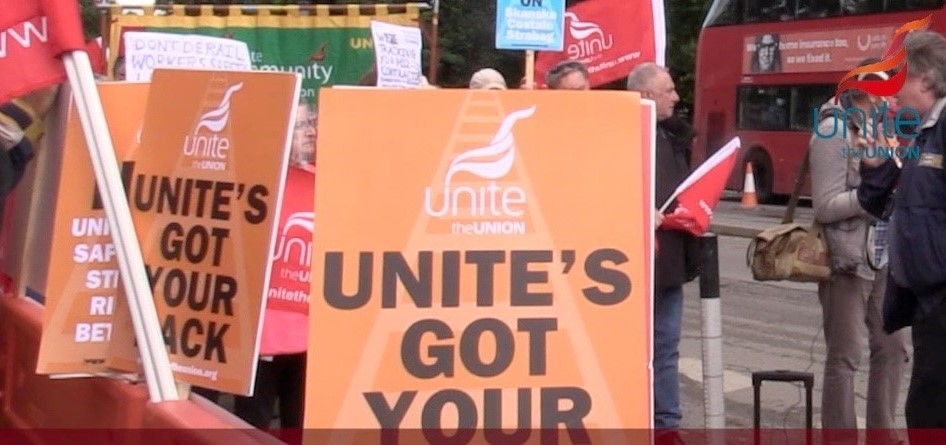Culture change call
Hajera Blagg, Wednesday, March 8th, 2017As people in the UK and the world over celebrate International Women’s Day today (March 8), Unite, the country’s largest construction union, will launch its Women in Construction Network on the first day of this year’s TUC women’s conference.
The Network will be an innovative and inclusive forum – run for and by women in the industry – to tackle the issues that women face in almost entirely male-dominated workplaces and to devise strategies for recruiting more women.
The stakes are high at this specific moment in time, as construction needs women now just as much as women need a shot in construction.
On the one hand, women are over-represented in traditional â€women’s work’ which tends to be lower paid – recruiting more women into typically â€men’s work’ such as construction, which is almost always better paid, will help make major strides in closing the gender pay gap.
On the other hand, the construction industry desperately needs more women because it now faces a massive skills shortage, not enough tradespeople working now and a skills gap with no plan to plug it.
â€No brainer’
“Attracting more women into construction is both a â€no brainer’ and a major challenge,” explained Unite acting general secretary Gail Cartmail. “A â€no brainer’ because women are a largely untapped pool to recruit from; a challenge because breaking into an industry that is 98 per cent male currently requires tenacity and demands encouragement.”
Indeed, despite women now making up nearly half of the UK’s workforce, only 12 per cent of all construction workers are women and they are concentrated mostly in secretarial, administrative, design and project management roles. Women are massively under-represented in manual trades, forming just 2 per cent of the workforce – a figure that’s hardly changed since the 1970s.
Recruitment and retention of women in construction is particularly challenging because of an entrenched culture both within the industry and surrounding it – parents and other carers and schools don’t encourage young women into careers in construction and the workplace itself can be what Cartmail calls â€ridiculously old-fashioned’.
“Employers are not experienced in dealing with maternity issues, women’s health and safety matters and sometimes can’t even provide essential personal, protective equipment (PPE) to fit women or women-only toilets and separate shower facilities,” she explained.
Bullying
“Members tell us they do not report bullying for fear of being labelled as complainers. Those that do complain say they have been ignored or ridiculed – accused of not being able to meet the demands of the job or told to go with the flow of â€banter’ and â€jokes’. More than one tradeswoman have told us that they are assumed â€lesbian’, this being seen as the explanation for their career choice.”
The challenges are many. As Cartmail notes, “We can’t change the culture without attracting more women and we can’t attract more women without changing the culture.”
Unite believes tackling the under-representation of women in construction can best be achieved in a number of ways, including by introducing flexible and family friendly working practices, having zero tolerance of bullying and harassment, offering mentoring and support in the workplace, active promotion of the industry to women and an expansion of the number of construction apprenticeships targeted at women, among other measures.
Unite has made great strides in particular with women apprentices in the industry. For example, in 2013 the board of JTL, which is made up of the Electrical Contractors Association and Unite and is responsible for managing training in the electrical sector, established an ambassador scheme to encourage a far greater number of women to undertake an apprenticeship.
The programme has been a success and the numbers of female apprentice electricians have increased.
One of the original ambassadors, Adele Walsh from the North West, has regularly attended schools, colleges and career evenings to talk about apprenticeships and encourage young women to sign up.
Buzz
“I get a buzz about letting people know about the job and how rewarding it is,” she said of the experience.
She is hoping to become a training officer “give stuff back and train other apprentices.”
Adele’s positive experiences of being an ambassador are shared by Sam Jones from Gloucestershire who has often appeared on local radio discussing boosting the number of female apprentices.
As well as being good for the industry Sam argues it’s good for Unite.
“Getting more women into the industry also means getting more women into the union, where they can progress,” she said. “It all links together.”
But Unite recognises that there’s much more work to do if construction is to become a viable career option for more women workers – the industry must change drastically and employers as well as trade unions should shoulder their responsibilities.
That’s where Unite’s Women in Construction Network comes in – it will be a group whose aims to improve the industry for women will be decided by women in the industry themselves. A forthcoming Facebook group, managed by participating Unite women construction members, will facilitate growth of the Network and wider communication.
“The aims and issues will be determined by the Network and we know from our experience that when women are linked up we are stronger,” Cartmail said.
Stay tuned to UNITElive for more on the Women in Construction Network as it develops
 Like
Like Follow
Follow


